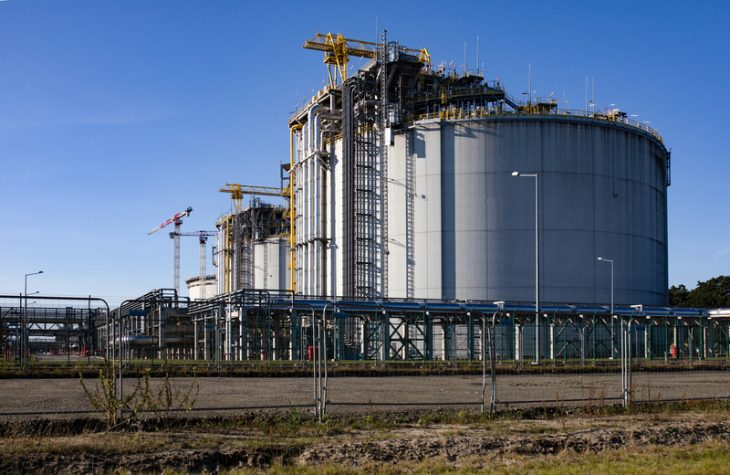The security of natural gas supply improved significantly in 2023, and the EU is on track to meet the REPowerEU goal of becoming independent from Russian fossil fuels by 2027, according to an analysis by the Intelligent Energy Association (AEI).
In 2022, total Russian gas imports (LNG and pipeline natural gas) have fallen to 80 bcm (24% of EU imports), compared to pre-crisis annual imports of 155 bcm (45%). Even if LNG imports from Russia have increased since 2021, they represent a very small share of the total gas imports, claims Dumitru Chisăliță, president of AEI.
“The total volume of imports continues to decrease in 2023, being estimated at approximately 40-45 billion cubic meters. In June 2023, only 8% of gas imports were through Russian pipelines, compared to over 50% before the war of aggression. Due to significant diversification efforts and reduced demand, the EU was able to fully compensate for the missing volumes from Russia. The new storage policy has not only ensured energy security for the winter of 2022-2023, but also ensures a more comfortable situation for the following winter,” the analysis states.
At the same time, the regulation on gas storage, adopted in June 2022, contributed to a record level of stocks of 95% in November 2022, exceeding the target of 80% in terms of stockpiling. The EU exceeded the 56% stocking level at the end of the 2022-2023 heating season, and its gas stocking target of 90% was reached on 18 August 2023, more than two months before the November deadline.
The Commission has proposed a series of measures to save energy and reduce energy consumption, in line with the principle of “energy efficiency first”. In May 2022, the Commission presented in its communication the EU Energy Savings Plan, which contains possible measures for Member States to reduce energy consumption and increase energy efficiency in buildings, industry and transport. This was complemented by the Energy Saving Sprint – an initiative launched by the Commission, the EU Convention of Mayors and the European Committee of the Regions to support cities to take immediate action in the same direction.
In 2022, the Council agreed on a voluntary 15% reduction in gas demand (or 45 bcm) by spring 2023, which was exceeded by an 18% drop in demand (or 53 bcm), all sectors reducing its gas demand. Based on this experience, the voluntary objective was extended until March 2024 and the saving of approximately 60 billion cubic meters of gas is estimated.
“In October 2022, the Council introduced exceptional measures, limited in time, with the aim of reducing the demand for electricity and redistributing the extraordinarily high revenues from the energy sector to end customers. The regulation set the target of reducing global electricity demand by 10% and by at least 5% during peak hours. Although the reduction of demand during peak hours has been achieved, the reduction of global electricity consumption by 10% represented a challenge for the Member States,” the authors of the analysis add.
